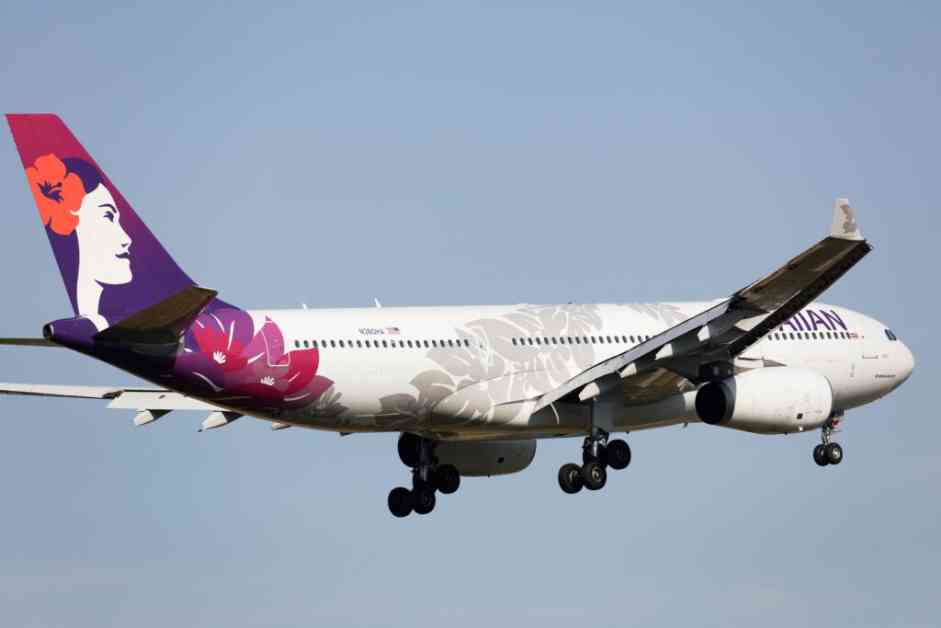Alaska Airlines emerged victorious in a lawsuit brought by a group of individuals aiming to block the acquisition of Hawaiian Airlines. The US district judge overseeing the case ruled in favor of Alaska Airlines, stating that the plaintiffs failed to demonstrate how they would be personally impacted by the takeover.
The lawsuit was filed in April by a small group of private citizens identifying themselves as airline passengers and former travel agents. They expressed concerns that the merger would negatively affect competition and potentially harm the Hawaiian Airlines brand. Alaska Airlines had announced its $1.9 billion acquisition of Hawaiian Airlines the previous year, assuring that both airlines would continue to operate as distinct brands under a shared parent company.
The Seattle-based carrier refuted claims made in the lawsuit suggesting that the merger would dilute Hawaiian’s unique ‘Aloha spirit’ and result in job losses in Hawaii. Alaska Airlines defended the deal, asserting that it would secure the future of Hawaiian Airlines for years to come.
In a detailed 52-page complaint, the plaintiffs drew parallels to Alaska Airlines’ previous acquisition of Virgin America in 2017, where promises to maintain the brand were ultimately broken. Alaska Airlines’ legal team countered by arguing that the plaintiffs lacked Article III standing in the case, meaning they could not demonstrate how they would personally suffer harm from the merger.
On Monday, Judge Derrick K. Watson sided with Alaska Airlines, emphasizing that the plaintiffs had not met the threshold for Article III standing. He highlighted that they had not shown any past or future intent to fly with either Alaska or Hawaiian Airlines, rendering their claims insufficient to proceed with the lawsuit. Furthermore, the plaintiffs were denied the opportunity to amend their complaint, as Judge Watson deemed it futile.
Despite this legal victory, Alaska Airlines still faces potential challenges from the Department of Justice regarding antitrust concerns over the proposed merger. The DOJ has yet to make a decision on whether to approve or oppose the takeover.
Implications of the Lawsuit Outcome
The dismissal of the consumer lawsuit against the Hawaiian Airlines acquisition marks a significant milestone for Alaska Airlines. It reaffirms the company’s position that the merger is in the best interest of both airlines and their stakeholders. By successfully defending against the claims brought by the plaintiffs, Alaska Airlines can now focus on moving forward with its plans for the acquisition.
The ruling by Judge Watson highlights the importance of demonstrating legal standing in cases involving corporate transactions. In this instance, the plaintiffs’ failure to establish how they would be personally affected by the merger proved to be a critical factor in the dismissal of their lawsuit. This outcome underscores the necessity for clear and specific allegations when challenging corporate decisions through legal channels.
Challenges Ahead for Alaska Airlines
While the dismissal of the consumer lawsuit is a positive development for Alaska Airlines, the company still faces potential obstacles in the form of antitrust scrutiny from the Department of Justice. The DOJ’s review of the proposed merger will assess the competitive implications of combining Alaska and Hawaiian Airlines under a single entity.
Antitrust concerns often revolve around the impact of mergers on market competition and consumer choice. Given the significance of the aviation industry in serving the travel needs of the public, regulatory bodies such as the DOJ play a crucial role in safeguarding fair competition and preventing monopolistic practices.
Alaska Airlines will need to navigate the antitrust review process diligently, addressing any potential regulatory concerns and ensuring compliance with relevant laws and regulations. The outcome of the DOJ’s assessment will influence the future trajectory of the merger and the strategic direction of both Alaska and Hawaiian Airlines.
Looking Ahead
As Alaska Airlines continues to pursue its acquisition of Hawaiian Airlines, the company must remain vigilant in addressing legal and regulatory challenges that may arise. By upholding transparency, accountability, and adherence to legal standards, Alaska Airlines can mitigate risks and enhance stakeholder confidence in the merger process.
The outcome of the consumer lawsuit underscores the importance of legal standing in challenging corporate decisions, emphasizing the need for specific and substantiated claims. Moving forward, Alaska Airlines will need to engage proactively with regulatory authorities, stakeholders, and the public to navigate the complexities of the merger process effectively.
In conclusion, the successful dismissal of the consumer lawsuit represents a significant milestone for Alaska Airlines as it advances its plans for acquiring Hawaiian Airlines. By overcoming legal challenges and demonstrating compliance with regulatory requirements, Alaska Airlines can position itself for long-term success and sustainability in the competitive aviation industry.






















